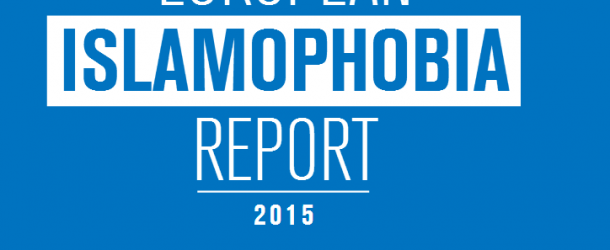Editors: Enes Bayraklı and Farid Hafez
Publisher: SETAV
Date of Publication: 2016
Number of Pages: 580
ISBN: 9786054023684
Website: http://www.islamophobiaeurope.com/reports/2015-reports/
Amazon: https://www.amazon.com/European-Islamaphobia-Report-Farid-Bayrakli/dp/6054023683
The term “Islamophobia” has been widely used and discussed for a long time, especially since the 9/11 attacks in the US. Although the history and definition of the term varies, from a general understanding, it refers to prejudice towards or discrimination against Muslims due to their Islamic identities. Despite the increasing visibility of the term in politics and societies, the phenomenon has not still found a strong place in the academic field. From this point of view, “European Islamophobia Report 2015”, as an annual work edited by Enes Bayraklı and Farid Hafez, tries to fulfill this gap by bringing 25 countries (in Europe) and 37 writers together.
Throughout the report, authors focus on the following issues related to Islamophobia in the examined European countries: events, incidents and developments; how Islamophobia works in employment, education, political and justice fields; and how Islamophobia has an appearance in media and cyberspace. Following this, the editors reach some findings:
- “In countries like Hungary, Finland, Lithuania or Latvia, where only a small number of Muslims live, Islamophobia functions as a successful means to mobilize people.
- Attacks in Paris that took place in 2015 became a discursive event that shaped the debates on Islam and Muslims throughout Europe.
- The refugee-migration-Islam-terrorism nexus became the standard argument justifying a number of domestic and international measures.”[1]
At the end of the report, the editors provide some policy recommendations as Islamophobia poses a great risk to the democratic foundations of European constitutions and social peace as well as the coexistence of different cultures throughout Europe. Some of those recommendations in a summarized version cover the following:
- “Islamophobia should be acknowledged as a crime and should be included in all national statistics throughout Europe.
- In order to collect data about Islamophobic incidents, victims registers must be introduced in all European states.
- Muslim civil society has to be empowered with information to combat Islamophobia, especially in the direction of the creation of a consciousness of the illegality of hate crimes.
- Civil society actors must engage with media actors/outlets in terms of the publication and broadcasting of standards in order to reduce/minimize the use of racializing discourses vis-à-vis Muslims and other minority communities.
- Civil society actors must also push for legislative change in the context of school enrolment policies so that all members of the respective societies are treated fairly when accessing education.”[2]
Overall, European Islamophobia Report is an exceptional annual report that covers a broad spectrum of issues and challenges pertaining to Islamophobia in Europe. I would like to recommend this report as a useful tool for scholars, readers and (mainly) European politicians and civil society actors.
Hacı Mehmet BOYRAZ
[1] Enes Bayraklı & Farid Hafez, “European Islamophobia Report 2015”, SETAV, 2016, p. 7.
[2] ibid, p. 8.

























































